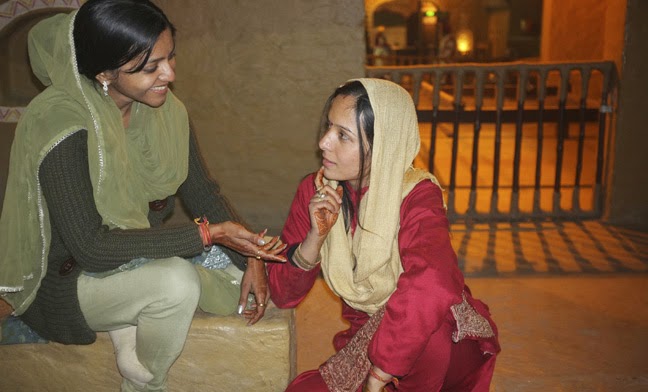Although he had no formal education, Muruganantham learned what he could about women’s sanitary habits and developed a research question. His work on this extremely taboo subject cost him his family and friends. His community also ostracized him but, after years of working toward his goal, his commitment paid off. Today, his invention, a machine that manufactures sanitary pads, has helped to improve the health of women in India and many other countries. Although he could have made a great deal of money with his machine, he decided, instead, to help more women. As a result, his creation has led to entrepreneurial jobs for women and increased health education in the communities they serve.
 |
| Intellistudies/iStock/Thinkstock |
Once I started reading the article, I couldn’t stop. I was inspired by Muruganantham’s commitment to his research. Being ridiculed didn’t stop him from finding answers to his research question. Being abandoned by his wife and mother didn’t stop him, either. (They later came back.) He didn’t allow his lack of formal education to make him feel unqualified to conduct his studies. What stands out most to me is his desire, above all, to help the women of his country. Although he could have become wealthy by selling his invention, he chose, instead, to use his invention to improve the lives of those for whom it was created. This, in my opinion, is exactly how research should be.
How many researchers can honestly say they would continue to do what they do if there was no notoriety or financial gain involved? If funding dried up or if others did not understand your reason for asking an unusual research question, would you continue to investigate? How many of us truly do what we do for the love of the work and the people we help and not to secure our place in the Ivory Tower? Muruganantham’s research was not conducted for financial security and material gain, but as a way to empower and advance—economically—women in his country and around the world. If we learn one thing from this story, it should be the lesson of selflessness.
In my own research career, I never want to forget the most important aspect of any study—the people who will be helped as a result of my findings. I’ve never been one to seek knowledge simply for knowledge’s sake. Learning something I didn’t previously know is great, but applying that knowledge to improving people’s health is more important. In the grand scheme of things, changing lives through research is more important than any six-figure salary, corner office, or national award. It’s all about the people; it should never be about the researcher.
Receiving credit for hard work and adhering to intellectual property laws are important, but we must get out of the habit of keeping research tools and findings in the hands of only a few. We must stop trying to build extreme wealth by charging exorbitant amounts for use of research instruments and interventions. If we uncover a way to address a certain health issue in a specific population, we should disseminate our findings widely, not simply among colleagues who attend national or international research conferences. We could all stand to apply to our research the kind of compassion, care, and concern that Muruganantham demonstrated for the women for whom he created his machine.
As the knowledge base of nursing research continues to grow, we should always remember we are nurses first, then researchers. The Nightingale Pledge reminds us that we are to “practice [our] profession faithfully … and devote [ourselves] to the welfare of those committed to [our] care.” While I can’t speak for colleagues in other disciplines, nursing research should never be about money or fame. It should always be about the patient, or, in our case as researchers, the participants and the populations they represent. We should do our best to ensure that our findings are implemented in a way that will help those most in need. When in doubt, ask “What would Muruganantham do?” He provides a wonderful example of remaining committed to the people for whom his research was conducted. We should all be so lucky to have our research touch so many lives.
For Reflections on Nursing Leadership (RNL), published by the Honor Society of Nursing, Sigma Theta Tau International. Comments are moderated. Those that promote products or services will not be posted.